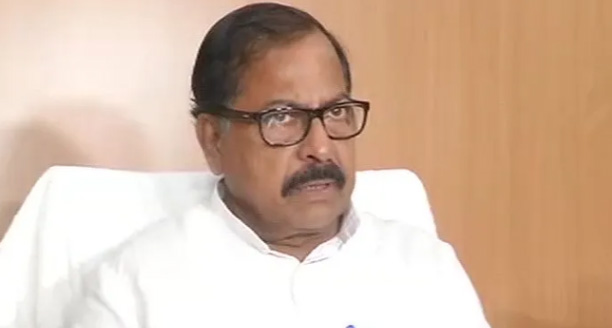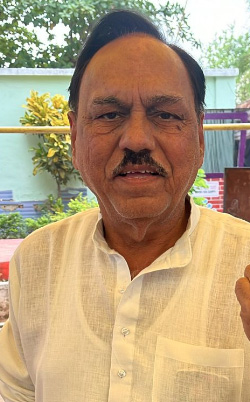Bhubaneswar: The humid air of Bhubaneswar hung heavy, thick with the scent of monsoon-soaked earth and the simmering discontent of veteran Biju Janata Dal (BJD) members. For years, they had remained loyal, their voices muted by a mix of respect and political pragmatism. But the 2024 general elections, with their unexpected and stinging defeat, shattered the fragile veneer of unity, unleashing a torrent of long-suppressed grievances.
Bhupinder Singh, a seasoned politician with decades of experience in the BJD, was one of the first to break ranks. His words, delivered in a measured tone to journalists, sent shockwaves through the party. He spoke of a tacit understanding, a clandestine arrangement, between the BJD and the Bharatiya Janata Party (BJP) during the election campaign.
“There was an understanding,” he stated, his voice firm, “a coordination that was not made public. This understanding, in my view, has significantly impacted the party’s performance.”
His statement was a direct challenge to the official narrative, which attributed the defeat to a wave of anti-incumbency and the BJP’s aggressive campaign. Shri Singh’s words hinted at a deeper, more complex reality, one where internal compromises and strategic miscalculations played a significant role.
Sashi Bhusan Behera, another veteran with a long and storied association with the BJD, followed suit. His pronouncements were even more pointed, his concerns more fundamental. He spoke of a party that had lost its way, a party that had weakened from within.

“The BJD has weakened,” he declared, his voice tinged with a palpable sense of disappointment. “The core principles, the very essence of what made the BJD strong, have been eroded. We need to introspect, to understand where we went wrong.”
Shri Behera’s critique wasn’t merely about election strategy; it was a lament for the soul of the party. He spoke of a disconnect between the leadership and the grassroots, a growing alienation that had alienated the party’s traditional support base. He suggested that the party needed to return to its roots, to reconnect with the people it was meant to serve.
The veterans’ public outbursts were not isolated incidents. They were the culmination of years of simmering frustration, fueled by a perceived lack of internal democracy and a growing centralization of power. Many within the party felt that their voices were being ignored, their experience undervalued. The election defeat, rather than uniting the party, had exposed the deep fault lines that ran beneath the surface.
The media, sensing a political earthquake, seized upon the veterans’ statements, amplifying their voices and dissecting their words. Television studios became battlegrounds for political pundits, and newspaper headlines screamed of internal strife. The BJD, once known for its disciplined unity, was now a spectacle of public dissent.
Behind closed doors, the party leadership scrambled to contain the damage. Attempts were made to downplay the veterans’ statements, to portray them as isolated voices of dissent. But the genie was out of the bottle. The veterans’ words had resonated with many within the party, and their courage had emboldened others to speak out.
The veterans’ actions were a calculated risk. They knew that their public criticism could have serious consequences, potentially leading to their expulsion from the party. But they also knew that silence was no longer an option. They were driven by a sense of duty, a desire to salvage the party they had dedicated their lives to.
The veterans’ rebellion was a turning point for the BJD. It forced the party to confront its internal weaknesses and to address the growing discontent within its ranks. Whether the party would emerge stronger from this crisis remained to be seen. But one thing was certain: the veterans’ voices had irrevocably altered the landscape of BJD politics, marking the start of a new, uncertain chapter.


